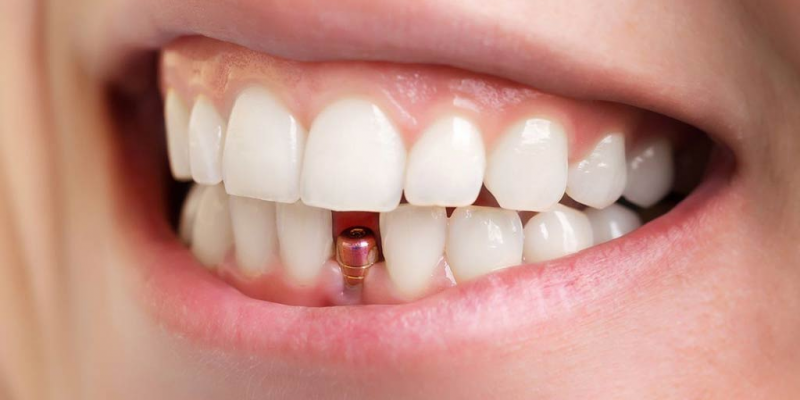Full Dental Implants Treatment
Full Dental Implants Treatment Recently, individuals have been inquiring, “Full Dental Implants Cost”. This is the treatment of the bridges on the bridges using the implants in the case of a complete dentist, or if it is necessary to remove all the teeth for a particular reason. Complete dentist cases are treated for the purpose of fixed or removable implant support supplements. Today, almost every individual desire that have a complete dentist is to have a fixed protease. First, it is necessary to be careful. Anatomic and physiological conditions must be suitable for the success of the application. The number of implants applied is one of the determining factors when determining the type of protease. In general, if two or four implants are used, the method of non-protease and non-protease is possible to have a fixed protease. First of all, it is necessary to be careful.
When you lose all or most of your teeth, the treatment you need is complete dental implantation. When implants are placed in the bones of the jaw and fixed on it by permanent bridge prosthetics or permanent prosthetics. They act as a root. It’s a serious and expensive treatment. Reducing the risk of bone loss: As implants are placed in the jawbone, they are firmly fixed, “retaining the bone’s integrity” and significantly reducing the risk of bone loss. Improvement of facial appearance: As mentioned, all oral dental implants prevent bone mass loss. And maintain bone height and volume. The long, complete absence of teeth increases bone loss. The lower part of the face looks wrinkled and deformed, giving it older. All oral prosthetics on implants provide the necessary completeness in the area of cheeks, improving the appearance. Easier to eat because chewing efficiency is better.
Full Dental Implants Cost Treatment Procedure
The application of implants requires several complex and lengthy procedures. If you are entitled to treatment, your dentist will conduct a thorough examination to prepare you for the procedure. The dentist will take your CT scan to install your mouth and maybe your implants. In addition, a surgical simulation of the upper and lower jaws or what needs treatment will be planned. Prosthetic types of vinyl must be specially designed to fit your mouth properly. Once you’re ready for treatment, you’ll be ready for surgery. The procedure does not require sedatives, but you can request them if necessary. Before implants are installed, their jaws are pilled. When you’re ready, surgery will begin. The dentist removes damaged or dislocated teeth and installs four implants. If there is any infected tissue, your dentist will remove all affect tissue during the procedure.
Clean the gums before placing the implants. Once the implants are place and the gums are suture, the procedure is over. Then the prosthetic phase begins. Your dentist will prepare you a temporary but fixed restoration that you can start using right away. The prosthesis is temporary, but it will restore your smile and chewing function while you recover. Once you have a temporary prosthesis, you are ready to leave. Before you go, your doctor will tell you how to take care of your mouth after surgery. You will be notified of postoperative oral hygiene and related issues. If necessary, the dentist will prescribe antibiotics or anti-inflammatory drugs to accelerate the healing process. Superficial surgical wounds heal within 1-2 weeks. However, you should wait up to 3 months for the dental implant to fully bond to the jawbone.
When Are Full Dental Implants Recommended?
Completely toothless jaw: A condition in which all-natural teeth are missing and replaced as naturally as possible. Many Missing Teeth: People have some or most of their teeth, but most teeth require dental treatment and there is a better option for repairing the entire mouth with a badly damage dental implant. May be provide. Health and Hygiene: Dentists need to be confident about their motivation for oral care for implant candidates. The application of whole mouth implants to people who cannot provide adequate oral care can lead to frustration even in the short term. There are some conditions where complete tooth reconstruction with implants is not strictly recommend, these are absolute contraindications. In some cases, treatment may not be select as first-line treatment, but it requires some caution and precautions.
These conditions are list under Relative Contraindications. Surgery and anesthesia are not recommend due to the general health of the patient. Tooth damage cause by physical damage to the teeth, severe caries, or gum disease can be treat. The loss of bone in the teeth is quite common in older people. This is one of the leading options for treating bone loss associated with age or disease. The implants are surgically place in the area with the largest bone density for long-term effects. Then four implants maintain a prosthetic with 14 teeth on the same jaw. To understand the real benefits of treatment, we must first understand what dental implants are. Tooth implant treatments are artificial versions of the root of the teeth. The tooth implants treatmet procedure, usually made of titanium, look like a screw attached by the dentist to the jaw bone.
During the Full Dental Implants Treatment Surgery
The implantation treatment operation usually takes several stages and the jaw around the implant must fully heal before the procedure can be continue. The typical operating sequence is this: If the damage tooth has not previously been remove, it shall be remove. The full dental implants cost. The jaw bone is prepare for an operation that may include bone plastic. Once the jaw is heal, the implant treatment operation is place inside the gum line. The chin is expect to heal again.
The Full Dental Implants surgeon will then install the abbot and attach the prosthetic to complete the implantation treatment process. This process may take up to a few months before the jaw heals and prepares the implant for final installation. The implant treatment surgery process cannot be make without a strong jaw, so you need to be patient in the healing process.
Do Breast Implants Get Bigger After Surgery or Is There a Problem?
If you have experienced something that has made, you wonder “do breast implants get bigger after surgery?” no, breast implants do not get bigger after surgery. If a patient is experiencing enlargement of their implants, it could be due to several factors, such as capsular contracture, weight gain, or shifting of the implant. It is important to consult a plastic surgeon for an evaluation if you experience any changes in your implants after surgery. Sometimes, a revision procedure may be necessary to correct any issues.

It is also important to note that the implant size will remain the same – they will not get larger over time. During the initial consultation, patients should discuss with their surgeon the expected size of their implants after surgery, and any potential risks associated with implant sizing. It is important to ensure that patients understand the possible outcomes of their procedure before committing to surgery. Finally, it is essential to follow up with your plastic surgeon for regular check-ups after surgery, ask them, “do breast implants get bigger after surgery?” so any issues can be addressed as quickly as possible. This will help ensure that your breast implants remain healthy and safe. If you have any other questions like “how breast implant surgery is performed?” you can contact a health care provider.



